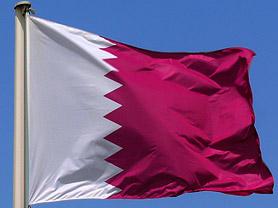
Arab Four puts nine organizations on blacklist
The recent decision of Arab countries to add new people and entities to the blacklist for links with Qatar will less likely result in prompt Gulf crisis resolution, which is high considered to be a number one priority for the international community.
Saudi Arabia, Egypt, the United Arab Emirates and Bahrain have added nine entities and nine individuals to their individual ban lists because of alleged links to Qatar.
Earlier, these four countries have already put 59 people and 12 organizations on blacklists for financing terrorism and receiving support from Qatar. The Arab countries promised that the list of people and organizations supporting terrorism will be updated.
The list has been replenished by entities from Libya and Yemen, as well as individuals from Qatar, Yemen and Kuwait, who have direct and indirect links to Qatari authorities. Saudi-led block has accused the listed individuals of assisting the terrorist groups Jabhat al Nusra and Al Qaeda.
Saudi Arabia, the UAE, Egypt and Bahrain in June cut off diplomatic relations, severed air, land and sea links with Qatar, accusing the latter of supporting terrorism, and ordered Qatari citizens to leave their countries within two weeks.
In early July, the Arab states sent a list of demand and required Doha to cut diplomatic relations with Iran, close the Turkish military base, eliminate Al-Jazeera TV channel, extradite all persons wanted in four countries on charges of terrorism and pay compensation. Doha refused to fulfill these requirements calling thelistunrealistic and not actionable.
On July 19, Saudi-led block reduced the list of requirements for Qatar and urged Doha to commit to six common 'principles' on combating "extremism" and "terrorism", and to negotiate a plan with specific measures to implement them without a specific time-frame.
These principles include commitment to combat extremism and terrorism in all their forms and to prevent their financing, suspending all acts of provocation and speeches inciting hatred or violence, full compliance with the Riyadh Agreement of 2013, adherence to all the outcomes of the Arab Islamic American Summit held in May 2017, and refraining from interference in the internal affairs of states.
Currently, Kuwait acts as the main mediator in the crisis.
---
Kamila Aliyeva is AzerNews' staff journalist, follow her on Twitter:
Follow us on Twitter
Legal Disclaimer:
MENAFN provides the
information “as is” without warranty of any kind. We do not accept
any responsibility or liability for the accuracy, content, images,
videos, licenses, completeness, legality, or reliability of the information
contained in this article. If you have any complaints or copyright
issues related to this article, kindly contact the provider above.


















Comments
No comment